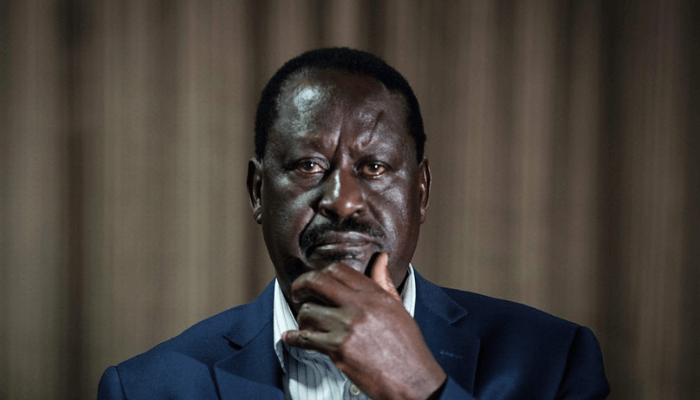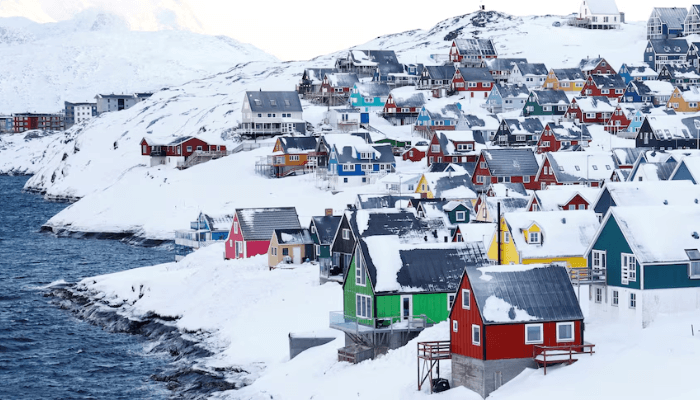Raila Amolo Odinga spent a lifetime in the arena, challenging presidents, shaking up governments, rallying crowds and shaping the soul of Kenya’s modern democracy. His death at 80, on Wednesday while receiving medical treatment at a hospital in India, has left a void in a nation whose political identity he helped forge.
Uhuru Kenyatta, former Kenyan president, captured the mood when he said Odinga’s passing had “left a silence that echoes across our nation.” That silence is being filled by the sound of thousands pouring onto the streets of western Kenya and Nairobi, waving flags, lighting candles and singing songs of a man they simply called “Baba.”
Read also: Former Kenya Prime Minister Raila Odinga is dead
Narendra Modi ,Indian prime minister described him as a “towering statesman and a cherished friend of India,” while President William Ruto led the nation’s condolences, visiting Odinga’s widow Ida at their Nairobi home.
A career defined by defiance
For decades, Odinga stood as a symbol of opposition, not merely against individual presidents, but against the very idea of unquestioned power. A political mobiliser of unmatched skill, he ran for president five times but never claimed the top job. Yet each loss only seemed to amplify his influence.
Odinga famously rejected almost every electoral result he contested, insisting he had been denied victory. In 2017, Kenya’s Supreme Court validated his claims of electoral irregularities, annulling Uhuru Kenyatta’s win and ordering fresh polls, a first in Africa. Odinga boycotted the rerun, demanding reforms, but his moral victory was already etched in the country’s democratic record.
Read also: Experienced Raila Odinga pushes for peaceful, prosperous Africa
His biggest test came earlier, the disputed 2007 election. As Odinga’s supporters took to the streets after he claimed he was cheated of victory by Mwai Kibaki, violence engulfed Kenya. More than 1,200 people were killed, and over 600,000 displaced in the country’s worst post-independence crisis. It ended only after international mediation led by former UN secretary-general Kofi Annan, which resulted in a power-sharing deal that made Odinga prime minister.
A statesman who knew when to fight and when to reconcile
Odinga’s political story was as much about conflict as it was about unexpected reconciliations. In 2018, a simple handshake between him and Kenyatta stunned the nation, calming tensions after months of protests and signalling a new political realignment.
And after losing the 2022 election to William Ruto, he eventually agreed to work with his rival, joining what the government called a “broad-based administration.” Some criticised it as a betrayal of his opposition role. He defended it as an act of national interest, a step toward unity in the wake of deadly protests that had shaken the country.
Read also: Raila Odinga: The visionary leader Africa needs for transformative change and unity
Earlier this year, Ruto’s government even backed Odinga’s bid to head the African Union Commission. He lost to Djibouti’s Mahmoud Ali Youssouf, but the campaign underlined his enduring continental stature.
The making of “Baba”
Odinga’s political instincts were shaped long before he stepped onto the national stage. Born on January 7, 1945 in Kisumu, he was the son of Jaramogi Oginga Odinga, Kenya’s first vice-president and a fierce critic of Jomo Kenyatta’s rule. Raila studied engineering in East Germany and returned home in the 1970s to teach at the University of Nairobi and run businesses.
His real fight began under President Daniel arap Moi’s one-party regime. Accused of involvement in a failed 1982 coup, Odinga spent nearly a decade in detention, often in harsh conditions. He became Kenya’s longest-serving political detainee.
His imprisonment, and his refusal to be silenced, turned him into a symbol of resistance. To many Kenyans, he embodied the struggle for multiparty democracy and human rights.
A populist who mastered the street
Odinga was not just a politician, he was a force of movement. His rallies, often electrifying, could pull in tens of thousands. His language was populist but sharp, weaving ordinary frustrations into political fire.
His supporters gave him nicknames that reflected his mythic status: “Baba” (Father), “Agwambo” (Act of God), and “Tinga” (Tractor), drawn from his 1997 party symbol. He connected not through scripted speeches, but through a raw, street-level authenticity that cut across generations.
Even his critics acknowledged his unrivalled ability to set the national agenda. Whether protesting on the streets or sitting at negotiation tables, Odinga had a knack for making himself central to Kenya’s political story.
A legacy beyond the presidency
Despite never holding the presidency, Odinga’s shadow loomed over every administration since the 1990s. He shaped constitutional reforms, steered power-sharing deals and gave voice to millions who felt excluded from Kenya’s political elite.
He was also a man of contradictions, both a revolutionary and a political insider. He spent years in opposition but also served in government as energy minister and prime minister. He condemned state power but also negotiated with it.
His death leaves Kenya with a question many are asking openly: who can fill his shoes?
An era ends
Odinga died in Kerala, India, after collapsing during a morning walk. Doctors said he suffered a cardiac arrest. His death triggered an outpouring of grief not just from Kenya, but from across the continent and beyond.
He leaves behind a political legacy that is messy, powerful, complicated and undeniable. A man who never became president, yet shaped presidential politics more than anyone else in his generation.
As crowds mourn in the streets he once electrified, one thing is clear, Kenya’s story cannot be told without Raila Odinga. He was, and will remain, its perennial challenger, its unlikely unifier, and one of its most consequential sons.











